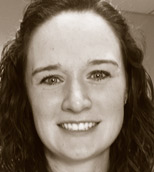
Predictive maintenance meets predictive analytics Gathering and analyzing IoT data for manufacturingDate: This event took place live on June 16 2016 Presented by: Danielle Dean Duration: Approximately 60 minutes. Questions? Please send email to Description:The mix of cheap sensors, fast networks, and distributed computing—the recipe for the Internet of Things—is gaining increasing attention in the manufacturing industry, where maintenance must be conducted for both individual assets of interest and complex manufacturing processes. In a talk aimed at data scientists, students, researchers, and nontechnical professionals, Danielle Dean introduces the landscape and challenges of predictive maintenance applications in the manufacturing industry. Predictive maintenance, a technique to predict when an in-service machine will fail so that maintenance can be planned in advance, encompasses failure prediction, failure diagnosis, failure type classification, and recommendation of maintenance actions after failure. Danielle reviews predictive maintenance problems from the perspectives of both the traditional, reliability-centered maintenance field and IoT applications, discussing problem coverage, applicable predictive models based on data available, and what data must be collected to perform predictive maintenance tasks. You'll learn how to bridge the data-driven approach and the problem-driven approach by articulating what types of data are needed for different predictive maintenance applications. Topics include:
About Danielle DeanDanielle Dean is a senior data scientist lead at Microsoft in the Algorithms and Data Science group within Cloud and Enterprise, where she leads a team of data scientists and engineers on end-to-end analytics projects that use Microsoft's Cortana Intelligence Suite for applications ranging from automating the ingestion of data to analyzing and implementing algorithms, create web services of these implementations, and integrate them into customer solutions or build end-user dashboards and visualizations. Danielle holds a PhD in quantitative psychology from the University of North Carolina at Chapel Hill, where she studied the application of multilevel event history models to understand the timing and processes leading to events between dyads within social networks. |
|
|
|
